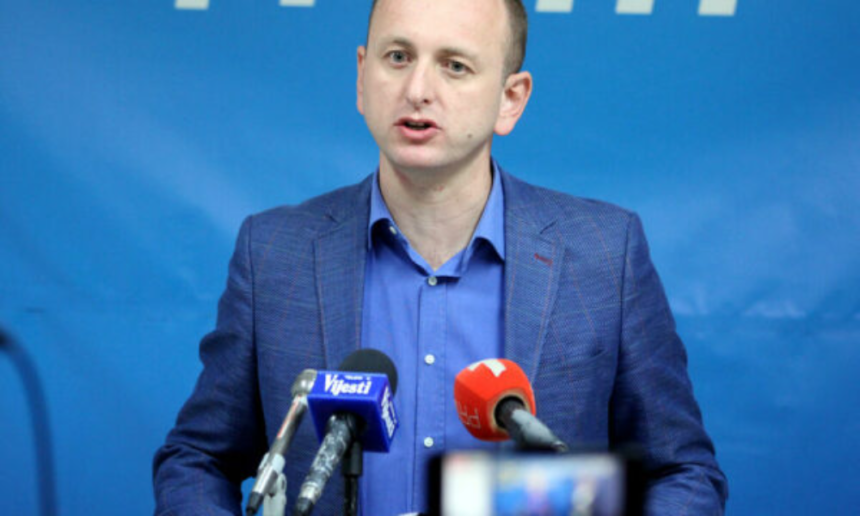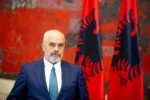Milan Knežević, leader of the Democratic Party of Montenegro, has once again voiced his nationalist stance towards the state of Kosovo. During a parliamentary session yesterday, he reiterated his views on Kosovo and sanctions against Russia, making it clear that his position remains unchanged.
Knežević’s comments came in response to the arrest of two Montenegrin soldiers, Rajko Krivokapić and Dragutin Lalatović, who were detained in Kosovo for traveling with a vehicle whose license plates displayed the slogan “Kosovo is Serbia.” Along with them, Jovanović was arrested, and the three, all from Nikšić, were taken into custody.
Knežević downplayed the actions of the soldiers, aligning himself with the Serbian nationalist narrative that Kosovo is a part of Serbia. “When the authorities in Prishtina impose restrictive measures on the innocent soldiers, they are essentially reacting because these people are in jail simply because they consider Kosovo to be the heart of Serbia,” Knežević stated.
He also expressed doubts about the fairness of the trial, suggesting that the soldiers would not receive a just judgment, and claimed that they did not need prior permission to travel to Kosovo. “I do not believe there will be a fair trial. We also don’t need permission to travel to Kosovo,” Knežević added.
Contrasting Knežević’s remarks, Montenegrin MP Ervin Ibrahimović firmly responded, stating that Kosovo is an independent state and that all in Montenegro should accept this fact. “Kosovo is an independent state, and we must accept that,” Ibrahimović said.
He also assured that the Kosovar authorities would treat the detained soldiers professionally, adding, “The perspective of the Western Balkans is membership in the EU.”
The two soldiers, Krivokapić and Lalatović, are set to be suspended, and disciplinary proceedings will be initiated against them for failing to notify their superiors about their travel abroad, as required by Montenegrin military law. While suspended, they will not receive two-thirds of their salary, according to Montenegrin news outlet “Vijesti.”
In the broader context, Knežević has gained notoriety in social media for a controversial remark regarding his grandfather, which he linked to the World War II era in Croatia. He also remains one of the three Montenegrin politicians declared persona non grata by Croatia, a decision prompted by his ongoing actions that undermine good neighborly relations.
This episode highlights the ongoing political tension surrounding Kosovo and its recognition, as well as the impact of nationalist rhetoric in the Balkans.







